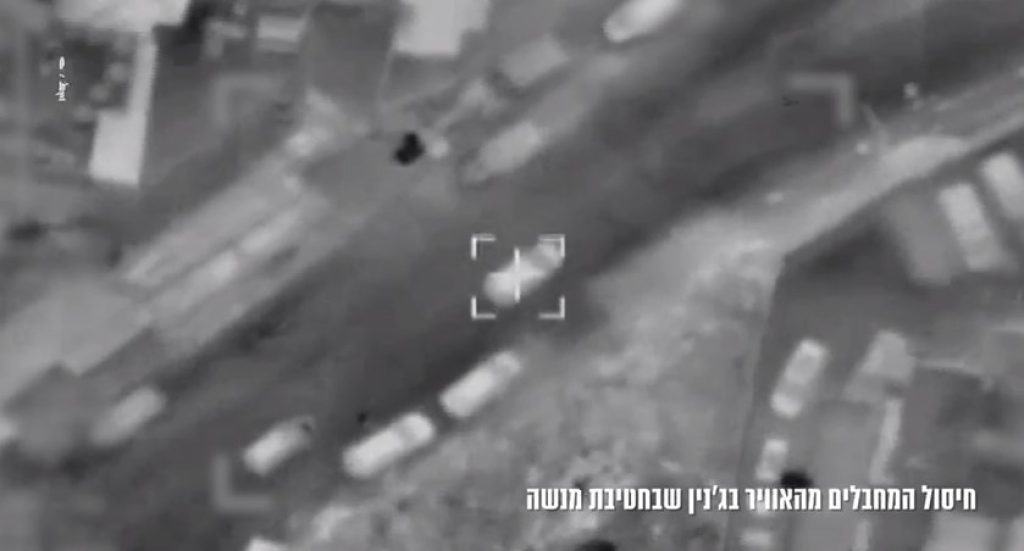
Israel is leveraging the current war against Hamas, Hezbollah, and its Iranian-led allies to carry out a campaign of targeted eliminations against entities involved in terrorist activities in the West Bank. Israeli operations have eliminated members of Palestinian terrorist groups that orchestrate West Bank violence in Gaza, the West Bank, and Lebanon.
On August 21, Khalil al-Maqdah, a Fatah leader and one of the founders of al-Aqsa Martyrs’ Brigades, died when a missile hit his vehicle in the city of Sidon, Lebanon. The Israel Defense Forces (IDF) confirmed the targeting and accused Maqdah of smuggling weapons to terrorist groups in the West Bank and organizing terror attacks.
Earlier this year, the Israeli military implicated Khalil’s brother, Mounir al-Maqdah, in transferring weapons to terrorist groups in the West Bank and fomenting violence under the direction of Hezbollah and the Islamic Revolutionary Guard Corps (IRGC).
Following Khalil’s death, Mounir affirmed the IDF’s suspicion, saying that his sibling was “responsible for transferring weapons to the Resistance inside Palestine.”
The killing of Mounir is undoubtedly not a one-off event after Hamas’s terrorist attack on October 7. It’s only the latest in a string of targeted killings against individuals who are actively supporting, plotting, and carrying out terrorist attacks against Israelis in the West Bank.
On July 24, a joint IDF and Shin Bet (Israel Security Agency) operation eliminated Hamas member Nael Sakhel in a Gaza airstrike. According to the IDF, Sakhel operated for more than a decade in Hamas’s “West Bank Headquarters,” a division in charge of orchestrating terrorism against Israelis in the West Bank. Furthermore, the IDF said that Sakhl was involved in “financing and supplying weapons to terrorist cells that promoted terror attacks against Israeli civilians and IDF soldiers in Judea and Samaria.”
Earlier, on May 27, the IDF eliminated Yassin Rabia, the commander of Hamas’s West Bank operations. Notably, Rabia was involved in the murders of IDF soldiers in 2001 and 2002, according to the Israeli military.
Furthermore, the strike killed Kahled Najjar, another senior Hamas member involved in terrorist activities in the territory.
IDF and Shin Bet efforts to target Hamas both locally and abroad highlight Hamas’s growing influence in the recent surge of terrorism in the West Bank, a trend that has been evident since the start of this year. Concerningly, Hamas is not acting alone; it is one of several groups contributing to the violence in the territory. Organizations like Islamic Jihad and the al-Aqsa Martyrs have posed serious challenges for Israeli forces operating in the West Bank. However, unlike Hamas, these groups lack the support infrastructure necessary to carry out persistent and sophisticated attacks against Israeli targets.
It is worth noting that Israel has also carried out a targeted assassination of a senior Islamic Jihad member in Gaza over his role in arming West Bank cells. On May 9, 2023, Israel eliminated Tariq Muhammad Ezzedine, who the IDF said was responsible for advancing Islamic Jihad’s weapons capabilities in the West Bank.
The looming catastrophe in the West Bank
The significant concern is that despite near-daily Israeli counter-terrorism operations over the last three years, Hamas, including other terrorist organizations allied with the Islamist group, persists in carrying out attacks and is establishing a substantial presence in the northern West Bank.
FDD’s Long War Journal spoke to former IDF International Spokesperson Lieutenant Colonel Jonathan Conricus (Ret), who voiced concern about the trending dynamic in the West Bank. Specifically, Hamas and other terrorist groups are evolving into a formidable force due to Iranian weapons smuggling. “It’s only a matter of time before they [terrorist groups in the West Bank] get their hands on anti-tank, anti-air, and standard-grade explosives,” noted Conricus.
Moreover, the eventual arrival of additional advanced weapons, sometimes referred to as “tie-breaking” arms, will drastically change the status quo in the West Bank. “The entire battle environment will change for the worst, as [Israeli forces] will be forced to go fully mechanized and armored, and the consequences on the civilian population will be dire,” warned Conricus.
Beyond the efforts of Hamas, Islamic Jihad, and al-Aqsa Martyrs Brigades, the current situation in the West Bank would not have unfolded without the backing of the Islamic Republic of Iran.
In 2021, Tehran made a calculated decision to increase funding and support for established terrorist organizations in the West Bank. Iranian leaders felt encouraged by the belief that the West Bank was vulnerable to unrest due to Hamas’s increasing popularity in the territory and a weakened Palestinian Authority (PA). Additionally, Iran likely recognized an opportunity to exploit the mutual distrust between the PA and the Israeli government, using this dynamic to further incite discord within the territory.
After more than three years of violence, the inevitable consequences have become apparent. Nevertheless, both the PA and Israel have failed to develop a unified strategy to confront this pressing threat in their backyard. Although it would be mutually advantageous for both parties to come together, neither has shown the political will to take that crucial step.
Israel’s unilateral military campaign against Palestinian terrorist organizations has, at best, merely kept tensions in the West Bank at a simmer. At worst, it is only slowing down the eventual takeover of the West Bank by Hamas and its allies. In terms of Palestinian terrorist activity, the West Bank is increasingly mirroring the Gaza Strip. This alarming trend should raise significant concerns in Jerusalem, Ramallah, Washington DC, and other centers of power.







